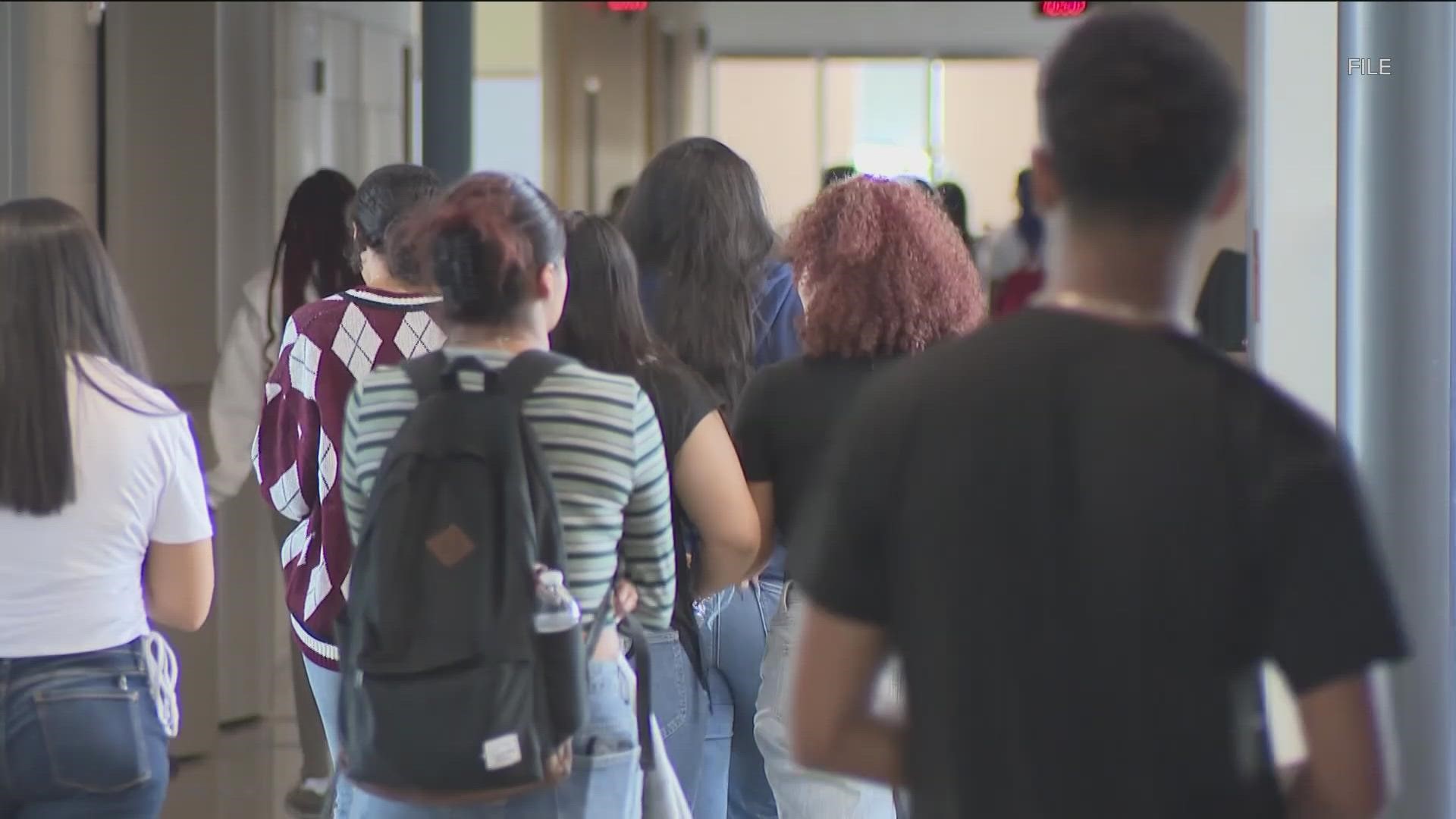AUSTIN, Texas — February is Teen Dating Violence Awareness Month, and several advocacy groups in Central Texas are reminding those who find themselves in an abusive relationship or who know someone who is in one that there are ways to break the cycle.
The Texas Advocacy Project has been around for 40 years and provides free civil, legal and social remedies for survivors of abusive relationships.
CEO Heather Bellino said February is a time to shine a light on an issue so many teenagers are facing.
"It's very important that we raise and uplift and amplify the voices of young people that are navigating these waters of young love so that they can understand what healthy relationships are, what positive conflict resolution is, and really what the red flags are of bad relationships," Bellino said. "Are they withdrawing from the family? Have their grades dropped? Have they changed their friend group? All of those things should be watched for as a parent, and teens need to watch out for each other."
According to Bellino, the tricky part is parents who think teen dating violence couldn't happen to their child and getting ahead of that.
Staff with the Travis County Sheriff's Office (TCSO) partnered with the Texas Advocacy Group for Teen Violence Awareness Month and noted the most dangerous time in an unhealthy relationship is during and after a breakup.
"The majority of domestic violence victims are 18 to 24 years old, so teenagers are in those developmental years where they're learning how to set boundaries and they're learning what to expect in relationships. They're learning what's OK and what's not," TCSO spokesperson Kristen Dark said.
Travis County currently has a victim services unit that offer resources to teenagers, which is open for new volunteers.
Other groups such as the SAFE Alliance, which also provides several free resources and services, point out the differences between teenagers and adults who fall into dating violence.
"They just have different pressures or things that are related to it, so like societal pressures or like peer pressure, or just trying to fit the norm of what their peers are doing. But then also with the internet being heavily involved, we have a lot of social media or digital abuse that exists that a lot of people really don't know about," SAFE counselor Michel Braswell said.
Braswell also added that the communication factor between parents and their children can go a long way.
"A lot of teens have a hard time communicating with their parents, so just being open with your teen, just asking them what's going on or how you can help can just be super important ways to help to prevent this in the future," Braswell said.
Both groups said they are working with school districts to engage with students about the tools available and will keep that dialogue going to ensure teenagers and anyone knows they are not alone.
If you or someone you know needs help, you can call the National Domestic Hotline at 800-799-7233.

